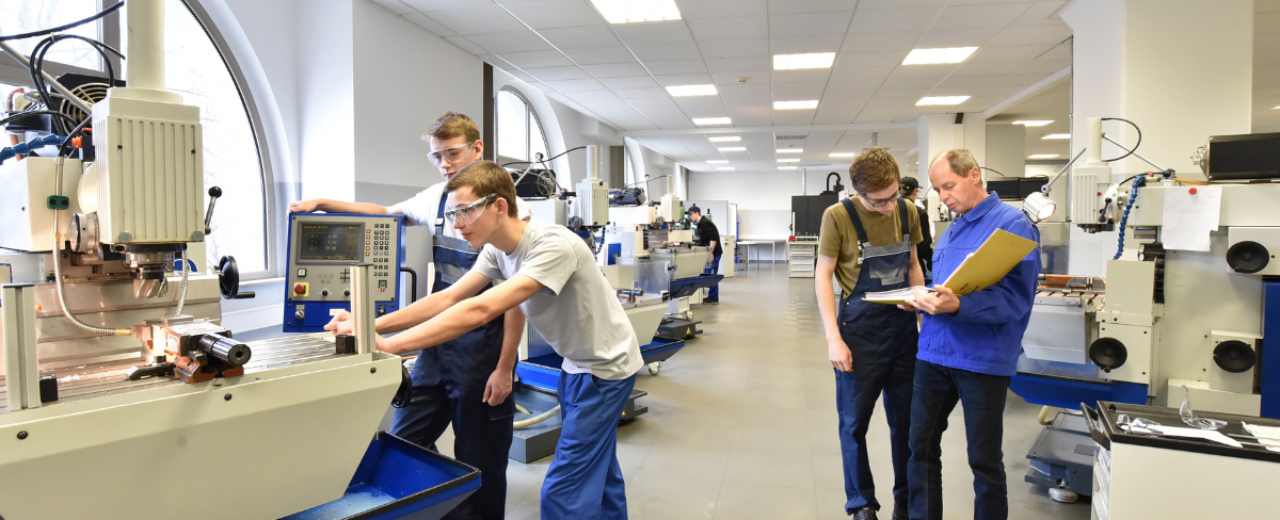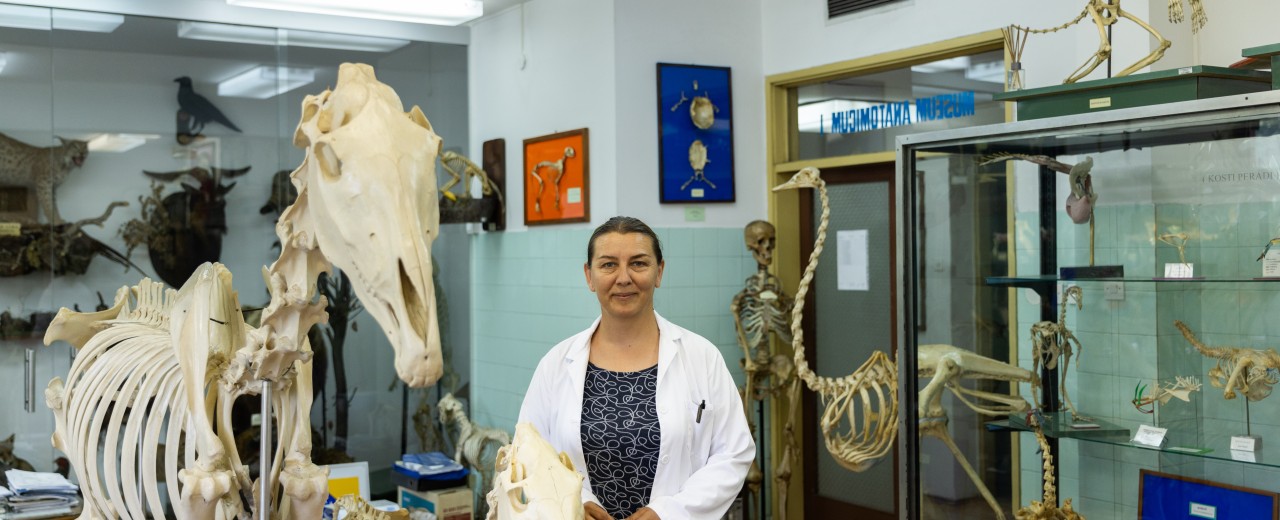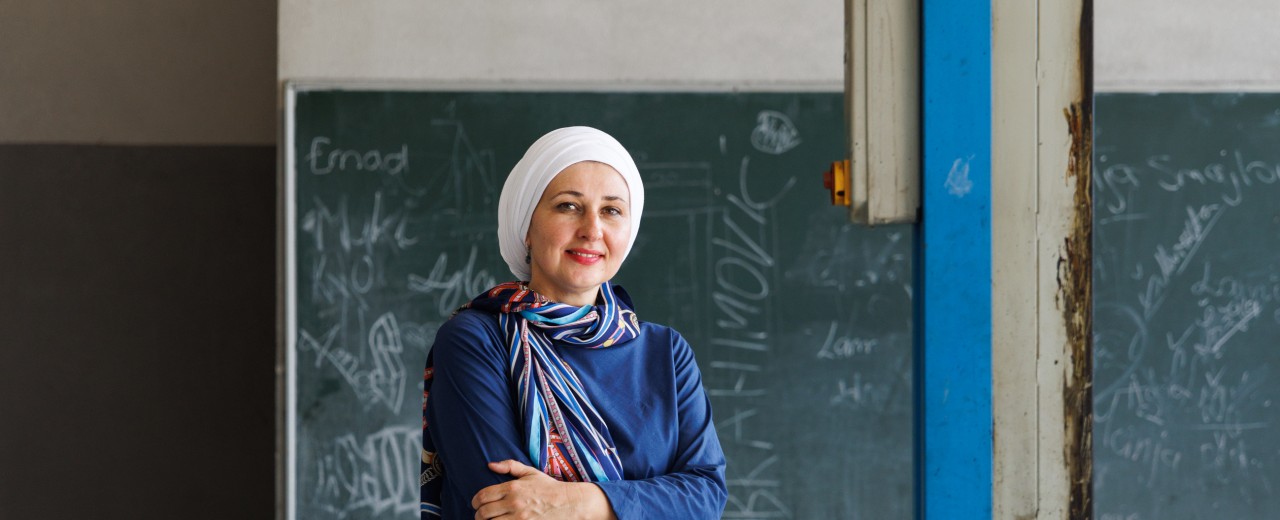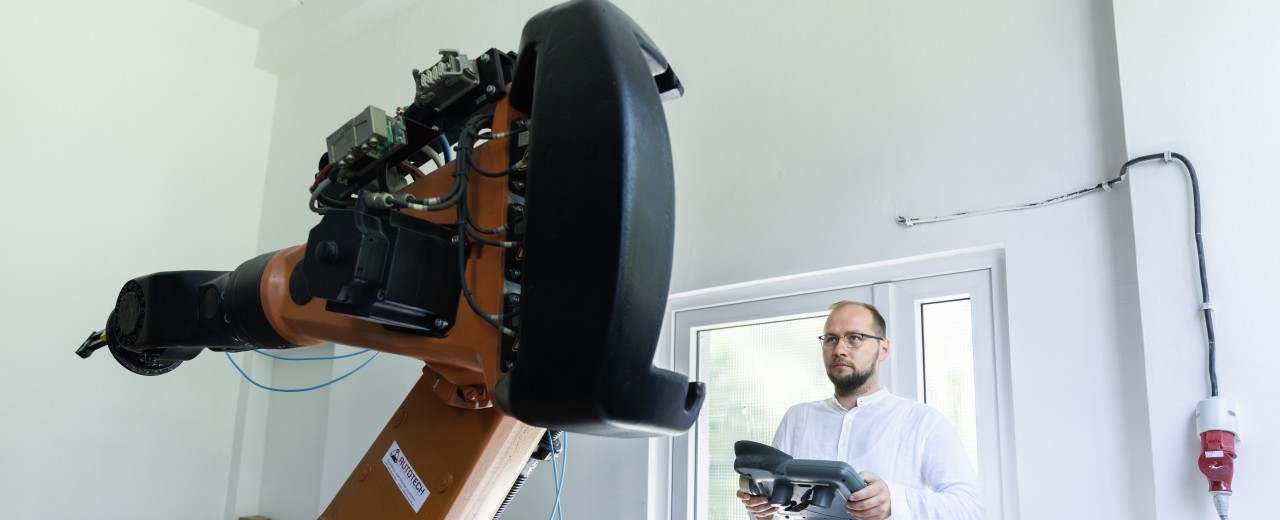Tip: Activate javascript to be able to use all functions of our website

The countries of the Western Balkans are facing a paradoxical situation: on the one hand, companies are urgently looking for skilled labour, while on the other, the region is suffering from high unemployment. This is particularly true for young people, whose unemployment rate is between 24 and 49%. One of the main reasons for this disparity is the poor quality of vocational training and its distance from the actual labour market.
Vocational colleges and universities are severely underfunded in the Western Balkans and usually lack suitable, modern infrastructure and equipment. In addition, training methods are often outdated and lecturers and teachers are not sufficiently well trained. Above all, however, there is too little cooperation with the private sector in order to fulfil their needs with appropriate training content. This results in a blatant lack of sufficiently qualified personnel, which jeopardises the region's growth prospects. According to studies, this is actually one of the biggest obstacles to further economic development in the region.
To counteract this, KfW has established the ‘Regional Challenge Fund’ on behalf of the German Federal Ministry for Economic Cooperation and Development (BMZ). Its aim is to provide better training for students and vocational school pupils in order to increase their employability. Similar to the German dual system, this is achieved for vocational students primarily through close cooperation with private companies in order to adapt the training content more closely to the needs of the labour market.
The fund works in the six national economies of Albania, Bosnia and Herzegovina, Kosovo, Montenegro, North Macedonia and Serbia. There, it promotes consortia of state-recognised vocational schools and private companies, which can apply for support from the fund for joint vocational training projects. This applies both to better infrastructure and equipment as well as to training content and the further training of teachers. The implementation partner is the ‘Western Balkans 6 Chamber Investment Forum’ (WB6 CIF), a regional chamber organisation. Universities can also apply for funding from the RCF.
The RCF has seen overwhelming demand: more than 600 vocational training institutions in cooperation with over 2,500 companies have applied for RCF funding to date. To date, 99 projects have been selected and total funding of around EUR 44 million has been committed. Above all, the great interest shown by companies in actively participating in vocational training is seen as a turning point in vocational education and training. Another important factor is that the private sector is being mobilised – in the form of capital (around 20% of the funds go to private training institutions, which contribute 20-80% private capital) and know-how (around 2,000 companies have taken part in the competition together with vocational schools).
German companies with production facilities in the partner countries have also participated in the consortia. For example, ZF Serbia LLC Pančevo (ZF Friedrichshafen AG) and Brose LLC Pancevo (Brose Fahrzeugteile GmbH & Co) have entered into a cooperation with a Serbian vocational school, which will receive an RCF subsidy of EUR 600,000. Here, industrial mechanics and mechatronic engineers are trained for production. The RCF funds will primarily be used to purchase training equipment for vocational schools that meets the requirements of Industry 4.0. The participating companies will each accept 30 trainees per training cycle in long-term or short-term courses.

Almost half of the companies involved come from the manufacturing industry, as well as the IT sector, healthcare, and tourism. They include small enterprises and enteprises with more than 500 employees.
In addition, the fund will promote a regional dialogue via the WB6 CIF so that education stakeholders can share their experiences. Last but not least, the Challenge Fund's activities should also help to bring the countries closer to the relevant EU standards. After all, all six countries are striving to join the EU and must come closer to the European Union's standards in a wide variety of areas; this also applies to the education sector.
Three examples from Bosnia and Herzegovina show how different the measures invested in are:

Two classrooms at the University of Veterinary Medicine Sarajevo are being renovated and animal models are being purchased. Pamela Bejdić, Professor of Veterinary Medicine, comments: ‘We will be pioneers in terms of ethics, as we will give students the opportunity to practise on models before working with live animals. Our faculty will be at the cutting edge of technology and among the best in Europe. We will purchase a large dog model alone, on which all kinds of operations can be practised. We are also planning to purchase another dog model, a pig, a cow, two cats and partial models for castrations. An ultrasound machine and a blood analyser are also to be purchased.’

Mechatronics engineers and mechanical engineers are being trained at a vocational school in Ilijaš. The buildings here are to be renovated inside and out, with floors, windows and doors being replaced. State-of-the-art technology - including in the IT sector - is being purchased.

The University of Mechanical Engineering in Zenica is receiving 500,000 euros in funding. Emir Đulić, research assistant at the Department of Production Engineering, explains: ‘Our university has ten partner companies, and during the four-year programme we try to network the students with these companies, for example by allowing them to complete internships. We also want experts from the companies to come and teach the students how to use the machines. We also teach metal and woodworking - an important sector of the local economy.’
Share page
To share the content of this page with your network, click on one of the icons below.
Note on data protection: When you share content, your personal data is transferred to the selected network.
Data protection
Alternatively, you can also copy the short link: https://www.kfw-entwicklungsbank.de/s/enzB1uco
Copy link Link copied